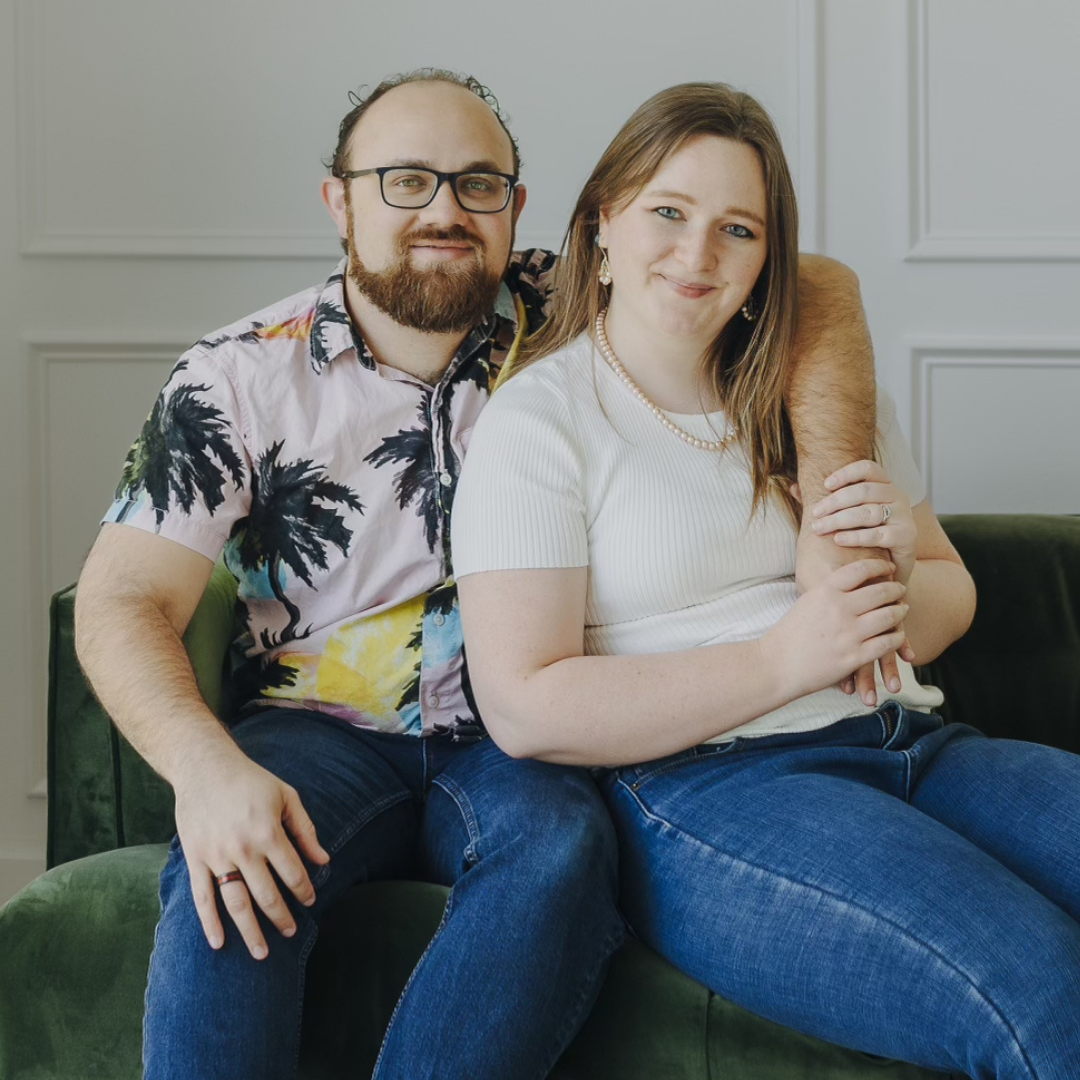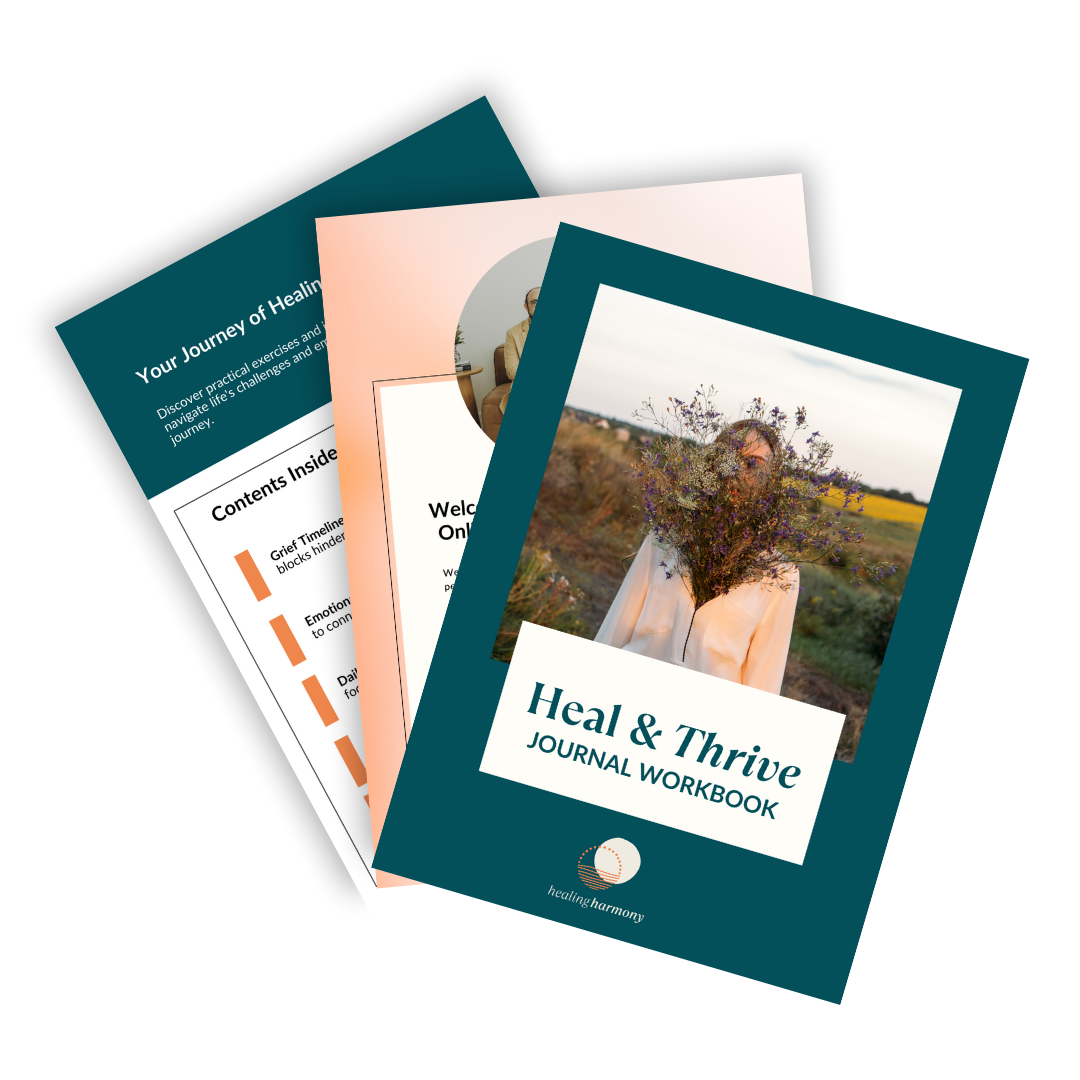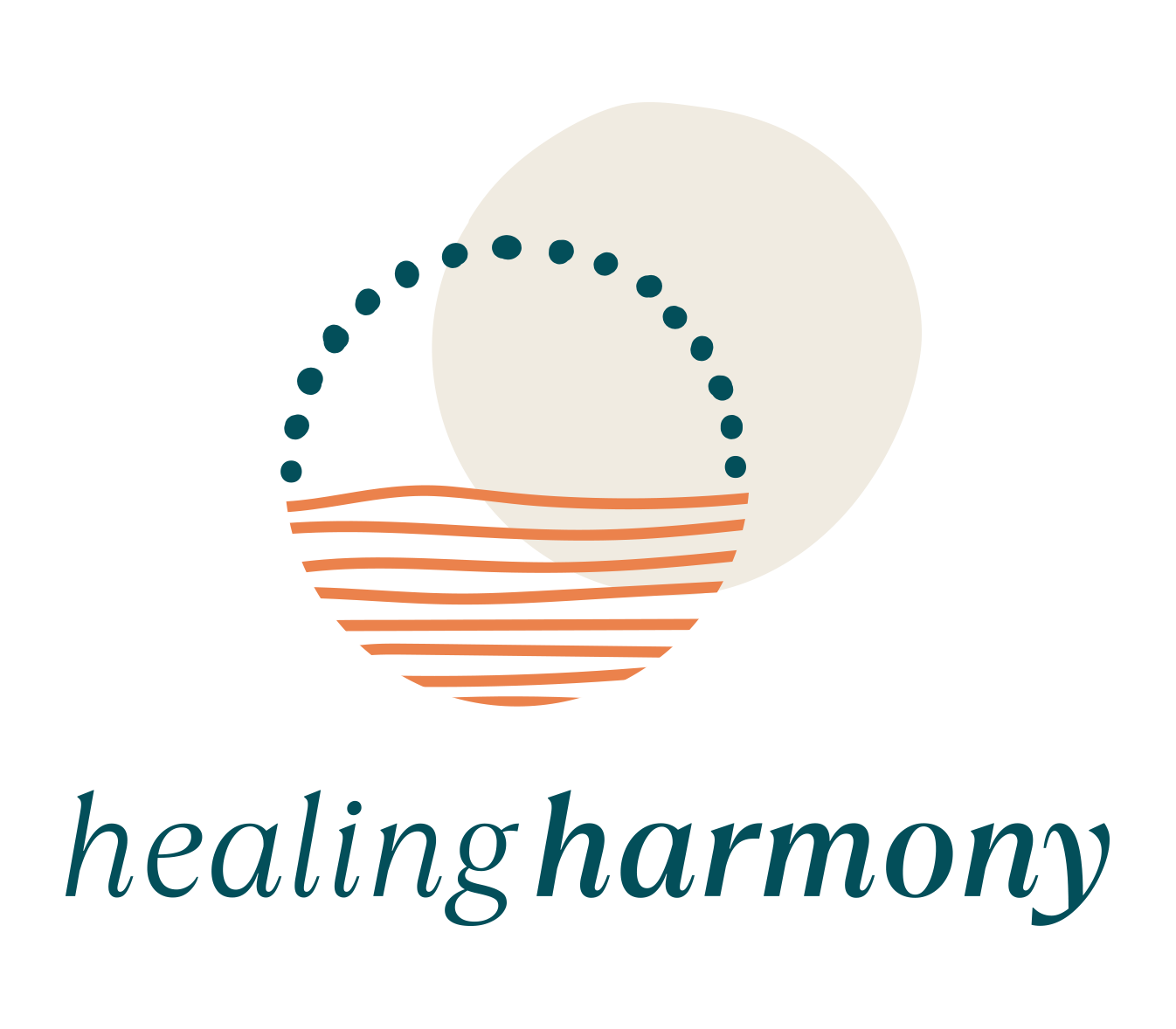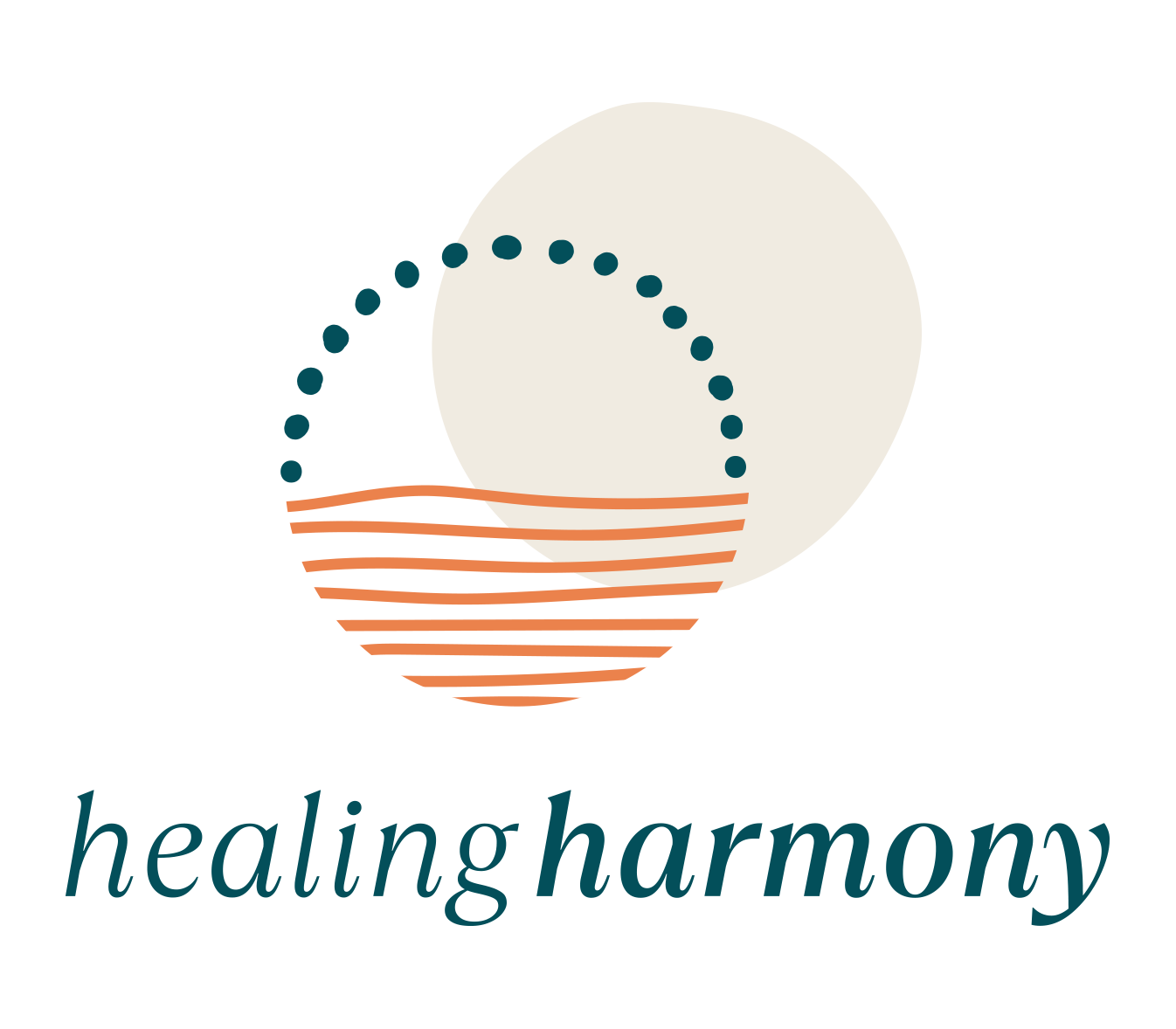Signs of ADHD in adult women: recognizing the unseen struggles and strengths
ADHD in adult women often goes undiagnosed or misdiagnosed because it doesn't always match the stereotypes. Instead of hyperactivity, it may show up as chronic overwhelm, difficulty focusing, emotional sensitivity, and a constant sense of falling behind — even when everything looks fine on the outside.
Many women with ADHD manage careers, relationships, and responsibilities while quietly struggling with disorganization, forgetfulness, and burnout. These symptoms can be mistaken for stress, anxiety, or simply “not trying hard enough,” making it harder to identify what’s really going on.
In this post, we’ll break down the common signs of ADHD in adult women, why they’re often overlooked, and how understanding them can lead to better support and self-compassion.
In case we haven’t met yet, we’re Jeffrey & Rebekah from Healing Harmony Counseling—therapists and life coaches specializing in helping young adults and teens find self-understanding, healing, and authentic growth.
Today, let’s walk together into the world of what ADHD really looks like for adult women—and why recognizing it could change everything.
ADHD symptoms in adult women: A hidden struggle behind the smile
ADHD in adult women often hides behind polished exteriors and relentless coping strategies like perfectionism, overworking, or people-pleasing. The symptoms can feel subtle on the outside but create intense inner chaos.
Common signs include:
- Constant daydreaming or zoning out during conversations
- Chronic disorganization—messy desks, missed deadlines, and half-finished projects
- Emotional overwhelm that feels like you’re “too much”
- Forgetfulness that undermines your best intentions
- Mental paralysis when faced with an overloaded to-do list—even with tasks you care about

ADHD in adult women can wear many masks:
- The Perfectionist: Spending hours rewriting an email, triple-checking the calendar, or reorganizing a closet—not because it’s necessary, but because if everything looks perfect on the outside, maybe no one will notice the chaos on the inside.
- The Caregiver: Saying "yes" to every request, managing the household, volunteering for extra work—not because there's endless energy, but because slowing down feels like failure, and disappointing others feels unbearable.
- The Achiever: Piling up degrees, promotions, and gold stars—driven not just by ambition, but by a desperate attempt to prove, over and over, that you're not "lazy," "flaky," or "irresponsible."
You might:
- Apologize ten times for a tiny oversight—feeling a shame so deep it keeps you awake at night replaying every detail.
- Feel guilt crash over you like a wave after missing a friend’s birthday, even though your love for them has never wavered for a second.
- Spend hours after a social event questioning everything you said, worrying you talked too much, laughed too loud, or seemed "weird."
- Crash emotionally after "holding it together" in public, needing days to recover from the simple act of being "normal."
And still, every morning, you rise again. You try again. You love fiercely, you dream big, you show up for the people you care about even when showing up for yourself feels impossible.
Behind the overwhelm, behind the disorganization, behind the tears you sometimes cry alone in your car after a long day—there is immense strength.
You have built entire worlds while carrying invisible weights most people will never see. And that strength? It’s not just resilience. It’s a kind of fierce, breathtaking courage.
ADHD doesn't erase your brilliance. It simply asks you to understand it—to stop hiding from it, and finally start honoring it.

ADHD in older females: How symptoms evolve over time
ADHD doesn’t vanish with age—it transforms. For many women, symptoms become more complex as life demands increase through college, career, parenting, caregiving, or menopause. What may have once been managed with adrenaline and late-night cramming begins to feel unmanageable when executive function is stretched thin across adult responsibilities.
This shift often goes unnoticed or misinterpreted. Hyperactivity becomes internalized, showing up as:
- Mental restlessness that makes sleep feel impossible
- Chronic overwhelm from simple tasks like booking appointments
- Emotional sensitivity that amplifies minor stressors into spirals of self-doubt
How is ADHD diagnosed in female adults?
A clinician trained to see ADHD in women will:
- Explore your childhood, not just for loud behaviors, but for quiet struggles—the forgotten homework, the lost conversations, the dreams started but never finished.
- Examine your current life, seeing how emotional overwhelm, missed deadlines, disorganization, or impulsive decisions impact your daily experience.
- Differentiate ADHD from anxiety, depression, or trauma, understanding how these threads often weave together—and knowing that treating only one won’t heal the whole.
- Use tools like the Adult ADHD Self-Report Scale (ASRS) to back up your lived experience with validation and clarity.
But more than anything, diagnosis gives you permission to look at yourself differently.
It gives you language for the invisible.
It gives you compassion for the moments you once only judged harshly.
It doesn’t change your past—but it opens new doors for your future.
Because you have always been capable.
You have always been enough.
You just deserved a roadmap that finally matches the way your mind was built to move.

ADHD symptoms in adult females vs males: Why it’s different
The numbers reflect this gap in recognition: only 5.6% of women and girls are diagnosed with ADHD—compared to 12.9% of men and boys—according to Psych Central's report on ADHD and gender. But that disparity isn’t about fewer symptoms. It’s about fewer people looking in the right places.
Research indicates that males are more frequently diagnosed with ADHD, not necessarily because they have a higher prevalence, but due to differences in symptom presentation and referral patterns. Boys often exhibit externalizing behaviors—such as hyperactivity and impulsivity—that are more noticeable and disruptive, leading to earlier referrals and diagnoses. In contrast, girls are more likely to display inattentive symptoms, like daydreaming and difficulty sustaining attention, which can be subtler and less disruptive in structured settings like classrooms.
These gender-based differences in symptom expression contribute to a diagnostic bias, where girls' symptoms are often overlooked or misattributed to other conditions.
Recognizing that ADHD manifests differently in females can lead to earlier identification, appropriate interventions, and a more compassionate approach to treatment.

Your journey deserves to be seen, understood, and celebrated.
ADHD isn’t a flaw. It’s a difference—a different way of moving, feeling, dreaming, living.
Recognizing your ADHD isn’t the end of the story. It’s the beginning of a chapter where your strengths shine, your struggles are met with compassion, and you finally stop apologizing for the way you were made.
If you’re ready to stop doubting yourself and start building a life that fits your brain—and your heart—explore our ADHD therapy in Dallas, Tx.
You are not broken. You are brilliant. And your journey to healing starts today.
*AI Disclosure: This content may contain sections generated with AI with the purpose of providing you with condensed helpful and relevant content, however all personal opinions are 100% human made as well as the blog post structure, outline and key takeaways.
* Blog Disclaimer: Please note that reading our blog does not replace any mental health therapy or medical advice. Read our mental health blog disclaimer here.

Hello, we are Jeffrey & Rebekah
Therapists and life coaches at Healing Harmony. We specialize in supporting multicultural families and Third Culture Kids (TCKs) through transitions and emotional challenges, fostering resilience and cultural identity.




